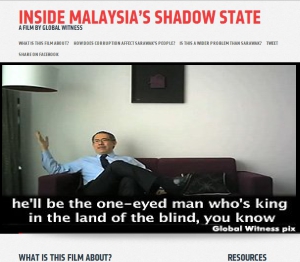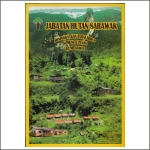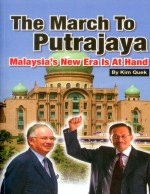By Pak Bui
 A few years ago, I watched an unregistered, or “illegal”, Indonesian timber camp worker, taken to a small district hospital, with a broken body. The young man had been injured badly in a logging accident. He had died during the two-day truck drive from the logging camp.
A few years ago, I watched an unregistered, or “illegal”, Indonesian timber camp worker, taken to a small district hospital, with a broken body. The young man had been injured badly in a logging accident. He had died during the two-day truck drive from the logging camp.
I stood among a small crowd of onlookers, watching the Indonesian’s body being removed from the logging truck. One burly hospital attendant lifted the young Indonesian in his arms, as one might carry a sleeping child, or, as Michelangelo depicted, the Madonna might have held her son’s body.
The logging company foreman told me the man’s body would be sent back to Indonesia after the death certificate had been issued. The young man’s wife and children would receive RM2,000 to bury him, the foreman said. There was no other compensation. As an “illegal” worker, the dead man had no insurance.
Migrant workers keeping Malaysia afloat
On another occasion, I met Andi, an Indonesian migrant worker, when he flagged down my four-wheel-drive vehicle, by a bridge near Long Lama. He jumped into the open back of the truck and asked for a lift to a nearby oil-palm estate. On our way there, he told me of long hours working on the estate, without job security or insurance. Andi, too, had no documents.
When Andi reached his junction, he leapt off, thanked me and offered me two ringgit, the standard fare for the short ride. I declined, since the fare would have been more than a quarter of his daily wage.
Andi, and two million other Indonesian migrant workers, keep Malaysia afloat. Without them, Malaysia’s economy could not have grown – indeed, Malaysia would have collapsed.
Yet Malaysians treat foreigners worse than most countries in Asia. Malaysians’ fear and disdain for “the Other” people in our midst has found expression in the abuse and torture of migrant workers and refugees.
Named an international shame
There are 171,000 refugees in Malaysia, fleeing persecution in their home countries. There are also estimated to be between two and three million migrant blue-collar workers, mostly Indonesian, Bangladeshi and Filipino, eking out a living in Malaysia.
The United States issued two reports this month, condemning Malaysia’s abuse of undocumented migrants.
 The US State Department’s “Trafficking in Persons Report” blacklisted our nation, together with four other Asian nations, Burma, Fiji, North Koprea and Papua New Guinea. The report described Malaysia as a destination and transit point for women and children exploited for sex, and for people abused in forced labour.
The US State Department’s “Trafficking in Persons Report” blacklisted our nation, together with four other Asian nations, Burma, Fiji, North Koprea and Papua New Guinea. The report described Malaysia as a destination and transit point for women and children exploited for sex, and for people abused in forced labour.
The US Committee for Refugees and Immigrants (USCRI) then released its annual report, the World Refugee Survey, dumping Malaysia in the worst rated group of countries for the treatment of refugees.
The World Refugee Survey accused Malaysian officials from the Immigration Department of selling refugees into slavery, and RELA corps of using violence against undocumented foreigners – including caning an under-aged refugee.
Conditions in refugee camps are filthy and inhumane. Two Burmese refugees died in an internment camp in Penang last month of leptospirosis, an infection caused by exposure to rats’ urine.
Malaysian abuse of Indonesion maids has also outraged decent Malaysians. The tip of the iceberg includes the charging of Hau Yuan Tyung, 43, with the horrific torture of Siti Hajar. Siti Hajar, 33, was scalded with boiling water and beaten repeatedly. A former Malaysian flight attendant, Yim Pek Ha, 40, was convicted last year of pouring boiling water on Indonesian maid Nirmala Bonat and burning her with a clothes iron.
Indonesian migrant workers are called TKI, Tenaga Kerja Indonesia. The TKI name, meaning Indonesian labour force, is significant: they do hard labour as builders, plantation workers and maids, usually under harsh and poorly paid conditions, so that they can send the fruits of their labour to their deprived families in Indonesia.
The Malaysian reaction to criticism
 Days after the US reports were released, the Malaysian Police acted on behalf of the Burmese military junta by arresting and threatening to deport 14 Burmese nationals, for holding a birthday celebration in support of arrested Burmese leader Aung San Suu Kyi. The Burmese face impirsonment, torture and worse if they are deported back to Burma.
Days after the US reports were released, the Malaysian Police acted on behalf of the Burmese military junta by arresting and threatening to deport 14 Burmese nationals, for holding a birthday celebration in support of arrested Burmese leader Aung San Suu Kyi. The Burmese face impirsonment, torture and worse if they are deported back to Burma.
The Malaysian authorities’ reaction to the US reports has been predictable. The criticism has been dismissed as an American ploy to suppress Malaysia.
Many members of the Malaysian public have also voiced their opposition to the recent move to allow foreign maids a day off a week.
Malaysia’s brutal xenophobia can be partly explained by the institutionalised racism ingrained in our culture.
Yet all Malaysians are immigrants. Even the Orang Asli, the Kadazan and Dusun, and the Dayak have records of their migration patterns into the region.
Each wave of migrants to our shores has brought energy, effort and innovation. Just as the Rejang, the Kinabatangan and the Yangtze rivers carry soil from the plains of their headwaters to enrich the estuaries, the influx of new migrants brings new life to Malaysia.
At the very least, we must treat these newcomers as fellow human beings. The Indonesian maid, Siti Hajar, told the media after she escaped three years of vicious abuse, “I hope my story is a lesson to all Malaysian employers not to treat their maids like animals.”
😦
“Hornbill Unleashed invites readers to email us at hueditor@gmail.com with leads or other specific information on issues or individuals involved in or related to the article above.”
![]()






















Malaysia Truly Rubbish
Comment by tria — August 31, 2009 @ 5:42 PM |
Religious Magnet…
We link our site to this blog – for the impotent information that it gives….
Trackback by Religious Magnet — July 9, 2009 @ 1:45 PM |
Hi SKY
I’ve found your website thro a friend
I’m in UK at the moment and will be moving back to Malaysia soon!
A huge decision initially but definately not a wrong one
One can only know what it is like out there when you have been there, done that!
Comment by SK — June 30, 2009 @ 1:49 AM |
[…] Last weekend saw a festival held in Brisbane to mark World Refugee Day. Over the last 30 years, south-east Queensland has seen a big increase in the range of ethnic communities with a refugee background. A growing number are from our region in South-East Asia. One of the newest emerging communities in Brisbane is the Rohingyas. I hadn’t heard of them until a year or so ago. They are originally from western Burma, although a lot of them live insecurely for many years in refugee camps in Bangladesh or at risk in Malaysia. […]
Pingback by World Refugee Day: One refugee’s story - Andrew Bartlett — June 29, 2009 @ 8:41 PM |
[…] of showing their kindness and charity to strangers—even their own religious kin. Check out this blog about Muslim Malaysia and how immigrants are treated under an Islamic governed legal […]
Muslim Malaysia accused of abuse of refugees and migrant workers « Refugee Resettlement Watch a
http://refugeeresettlementwatch.wordpress.com/2009/06/28/muslim-malaysia-accused-of-abuse-of-refugees-and-migrant-workers/
Pingback by Refugee Resettlement Watch — June 29, 2009 @ 3:25 AM |
The discussion over mistreatment of our guests from foreign lands should not be couched in terms of religion, least of all “Muslim-Malaysia”. The abuse is born from our political and cultural mindset. All races and religions are involved in the abuse of foreigners.
Comment by Pak Bui — June 29, 2009 @ 12:07 PM |
I remember talking to some Indonesian foreign workers who were here illegally a while ago. They told me that in the mornings, the police would come by their settlement (somewhere in PJ) to collect protection money, and in the afternoons the Rela or army personnel (they were not quite sure which one) would come for the same reason.
Once I decided to take a bus from KK to Lahad Datu. The bus was filled with foreign workers on their way back to their villages in Indonesia from Sabah, and they were taking with them some electrical items, clothes and foodstuff they had bought for their family back home. Apparently, the KK-Lahad Datu bus would be stopped along the way by the police and army personnel looking to make a fast buck.
I saw for myself how the bus stopped and how the police came around asking for travel papers and documents. They left me alone but it was obvious that they were curious as to what an Indian woman was doing in that bus. Then there was another stop and this time the army personnel were around. I found out later that there was no collection that night for our boys in uniform because I and another friend (also an Indian) were in the bus. They probably thought we were undercover agents or something.
Comment by writestreet — June 28, 2009 @ 5:38 PM |
Many Indonesian workers here have told me of their homes where they have enough to eat: grains, vegetables, fruits, livestock and even fish. But they don’t have money to pay for gas, electricity, tap water, TV, a better built house, education for their children or all the nice things they see in TV and shops.
So they leave their homes to seek a ‘better life’!
Comment by may ling — June 27, 2009 @ 11:05 AM |
I get the same thing too back in my kampung (although I’m not from Indonesia).
And, yes, I had a short stint at an oil palm plantation. And, yes, I saw how bad we Malaysian employers treat those labourers.
Something is wrong with us…
Comment by dee — June 27, 2009 @ 1:03 PM |